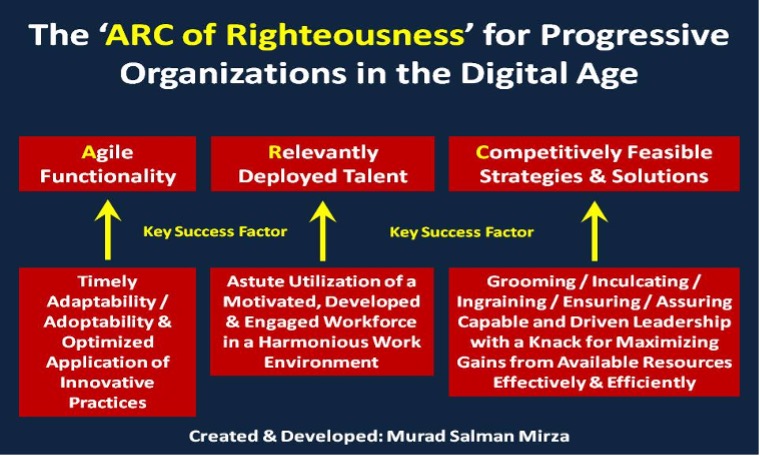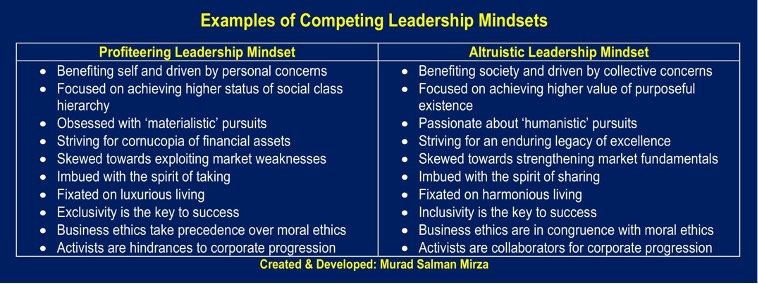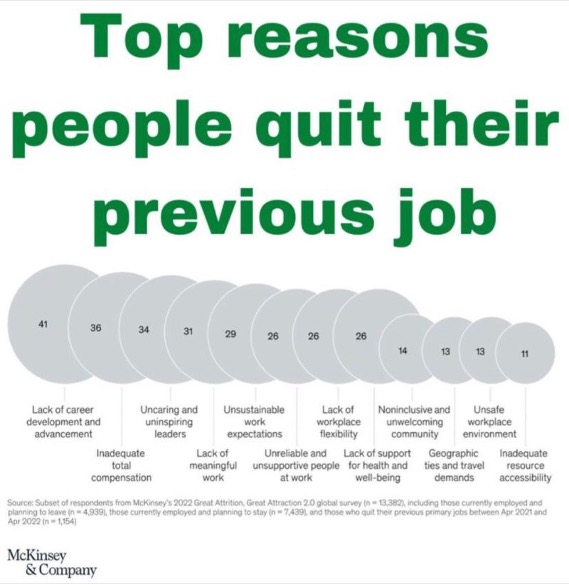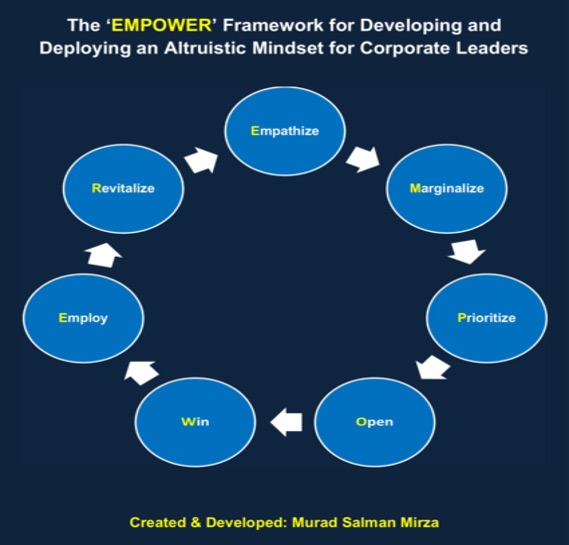
The character ‘Gordon Gekko’ from the famous 1987 movie ‘Wall Street’ coined the phrase ‘Greed is Good’ which encapsulated the self-serving approach of the ‘cutthroat’ Corporate Sector in the 80s. This also became the prevalent mantra in the subsequent years for the brutally ambitious and perennially high-flying executives in terms of stamping their success on the business landscape while serving as a ‘motivational tool’ for budding professionals. However, things began to change as the growth of the internet gave an influential voice to the ‘individual’ customer/client who had felt shortchanged earlier by the dominance of the major shareholders in deciding the future of the industry titans.
What the character ‘Gordon Gekko’ failed to emphasize while extolling the virtues of ‘Greed’ was that organizations are a reflection of their leadership, and pristine reputations can be washed away with nagging scandals that linger in the minds of ‘prudent’ customers/clients whose numbers have grown manifolds with the ‘fostering’ provided by the internet. Such ‘enlightenment’ has meant that organizations cannot ‘afford’ the dubious/fallible ‘rock star’ leaders anymore, with a propensity for ‘fizzling out’ in controversial circumstances. Consequently, they are increasingly leaning towards ‘seconding’ affable/personable executives who have mastered the art of seeming ‘ordinary’ while accomplishing ‘extraordinary’ feats as they are imbued with the principle of ‘serving’ rather than being ‘served.’

This is facilitating the transformation of what ‘Greed’ means within the hordes of ‘Digitally Emboldened’ customers/clients while gauging the ‘relevance’ of corporate leaders. It is steadily moving beyond the profiteering notion of ‘accumulation of financial assets by any means necessary’ to the altruistic notion of ‘accumulation of robust goodwill by transparent, efficacious and accountable practices.’ The following table provides further understanding of the respective context:

Furthermore, employees look to their leadership for vision, direction, role modeling, and inspiration. However, if an invigorating leadership does not redeem their confidence, then any attempt to inculcate a profound sense of purpose to accomplish complex challenges can become an exercise in futility. This is especially true when employee expectations are not assessed proactively and effectively managed in a timely fashion, as attested by the following results of a survey by McKinsey & Company:

The COVID-19 Pandemic was a catastrophic ‘wake-up’ call that jolted ‘complacent’ corporate leaders out of their ‘slumber’ (primarily induced by past achievements) as it invalidated all the ‘routine’ and ‘foreseeable’ risk-management plans while necessitating the imperative of rethinking ‘survival,’ ‘relevance’ and ‘competitive’ strategies. Let’s explore some of the key lessons in the respective context:
People increasingly prefer brands that are aligned with their values
The devastating impact of the COVID-19 Pandemic forced people to assess the futility of chasing an ‘overbearing’ and ‘excessive’ lifestyle that primarily focused on salivating over fancy and expensive brands in a constant ‘craving’ for social acceptance within snobbish circles. Such a ‘self-reflection’ proved to be a catalyst for a relatively simpler living while raising the prudence level regarding brand selection to facilitate a more ‘sustainable’ living. Consequently, organizations are increasingly focusing their marketing initiatives on ‘Conscious Branding’ to preserve and increase their market share in congruence with changing consumer habits and trends. This is also galvanizing corporate leaders to build more vital ‘communal’ bridges that can act as a ‘buffer’ in future economic downturns, especially those driven by unexpected events like the COVID-19 Pandemic.
People are unforgiving of corporate leaders who thrive on the misery of the masses.
The words and actions of the corporate leaders came under intense scrutiny by the masses during the ‘turbulent times’ of the COVID-19 Pandemic since there was a ‘humanistic’ desire to engage with companies that were willing to make ‘visible’ concessions in holding on to long-term customers/clients. Consequently, people put a premium on corporate leaders’ empathy, resilience, and authenticity as their choices became narrower in terms of giving their ‘business’ to those in the ‘trenches’ with them. This has led to a comprehensive rethink of how organizations need to be run and what it means to be a ‘justly capable’ leader. An important aspect in the respective context is the judgment of the consumers/clients in terms of gauging whether ‘exploitive’ leadership is an ‘abnormal’ situation or a ‘systemic’ issue that is liable to cripple an organization’s ability to meet their expectations.
People are reducing their ‘social’ networks and increase their ‘care’ networks
There was a heightened sense of urgency during the worst ravages of the COVID-19 Pandemic for people to find ‘true meaning’ in their lives as familial bonds were gradually strengthened while living under restrictive conditions. Digital gadgets steadily yielded to purposeful face-to-face conversations, and bridges started being built over generational gaps. A general realization began circulating in the ‘homely’ atmospheres that the sacrifices made for career aspirations should not come at the cost of marginalizing relationships with loved ones. This was also important from a health and well-being perspective (https://lnkd.in/dkbjwn2). Consequently, there has been a shift from ‘rampant extraversion’ to ‘preferred introversion’ in reducing the ‘social crowds’ and increasing the ‘care crowds’ to extract more value from meaningful relationships. This is also being projected on the type of corporate leaders people want to see at the helm of progressive organizations.
The following ‘EMPOWER’ framework can be utilized in enabling corporate leaders to develop and deploy an Altruistic Mindset as one of the key enablers of Organizational Excellence in progressive organizations:

Empathize
Focused on extending care by internalizing the ‘pains/problems/predicaments’ of others
Marginalize
Focused on sidelining apprehensions/fears/misgivings by concentrating on the positives
Prioritize
Focused on the unbiased ranking of significant issues for systematic problem-solving
Open
Focused on accommodating constructive views/opinions/suggestions/ideas from multiple sources
Win
Focused on developing win-win solutions that are readily embraced by key stakeholders
Employ
Focused on judicious and effective implementation of win-win solutions
Revitalize
Focused on timely and honest reviews that strengthen continuous improvement initiatives
An organization’s definition of ‘success’ needs to balance the conventional coveting of ‘reward and recognition’ with the enterprising munificence of inter-human connectivity based upon shared values. This can be readily modeled and driven by corporate leaders imbued with an Altruistic mindset. Such a proactive approach to ‘compassionate’ leadership is the best hope for organizations to survive the next ‘unexpected’ crisis as the firm psychological contracts affirmed during the ‘normal’ times with the workforce will work as a durable buffer in thwarting/alleviating/neutralizing any profound risks to the ‘going concerned’ status of seemingly ‘secure’ organizations. Are you prepared accordingly?




